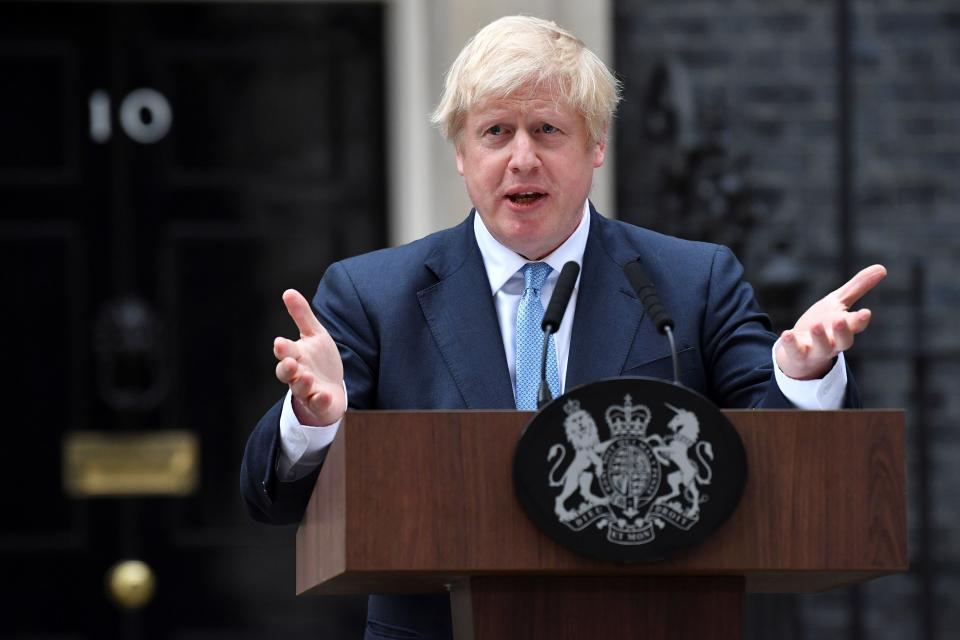What UK immigration rules will look like after Brexit

Prime minister Boris Johnson has promised an “Australian-style” points-based immigration system, and a new report this week sets out how it could work.
Downing Street has said Johnson will “carefully consider” the review, which was commissioned by government and is expected to form the basis of Britain’s post-Brexit migration rules.
While the biggest changes will come for EU citizens hoping to move to the UK, the proposals would affect all migrants seeking skilled worker or employer-sponsored visas.
Here is what the Migration Advisory Committee’s (MAC) report could mean for UK immigration:
What is an Australian-style points-based system?
A points-based system means assigning applicants ‘points’ for different characteristics, and accepting some or all migrants who score highly enough when their total points are tallied.
Australia has had a points-based system since the 1970s, though more migrants enter through other visa routes. Other countries like Canada and New Zealand also have them.
The focus on new ‘points-based’ rules will strike some migration experts as strange, as part of Britain’s immigration system is already points-based.
Non-EU migrants who have a job offer are among those already following a points-based route, introduced under former prime minister Tony Blair.
But Professor Alan Manning, chair of the MAC, has said this was points-based “in name only” as migrants had to meet all criteria, rather than simply accruing enough points.
How would it work in the UK?
The MAC’s report proposed a new truly points-based system for migrants looking to move to the UK without a job offer. It could affect many EU workers who currently enjoy free movement without restrictions.
‘Points’ would be awarded for things like:
higher-level qualifications, with UK degrees rewarded most;
skills in sectors the government wants to encourage, like science, technology, engineering and maths (STEM);
language skills;
and “exceptional promise” for younger applicants.
A purely points-based system wouldn’t include a cap on numbers, but the committee backed quotas, without suggesting a potential level. Migrants with the highest points would be chosen if applications exceed the limits.
READ MORE: Firms fear staff shortages and red tape from skill and salary rules
Migrants would apply through an ‘expression of interest’ form, with a set number each month then invited to submit full applications.
The MAC said the new points system could replace the current Tier 1 ‘exceptional talent’ visa for migrants without job offers, or form an entirely new visa.
The committee said the current ‘exceptional talent’ visa sets “too high a bar,” as only 600 out of a potential 2,000 visas were handed out last year. The report proposed re-writing the points criteria to increase the number of eligible migrants.
What are the rules for migrants with job offers?
The MAC recommended the government keep and expand the current Tier 2 ‘general’ visas. These are currently open to non-EU workers looking to move to the UK, but EU workers would also be eligible when free movement ends.
These visas currently require most applicants to have a job offer that earns at least £30,000, and are limited to jobs defined as medium- and high-skilled.
However, the report said the minimum salary should be lowered from £30,000 to £25,600, a move welcomed by employers who fear shortages of lower-paid staff.
READ MORE: UK government told to lower migrant salary cap
Exceptions to the salary cap would be made for some roles in health and education. But the thresholds would be even higher and reviewed annually in sectors where average pay is higher.
“It essentially says that the government needn’t bother with a points system for people coming to the UK with a job offer, and that the current system relying on employer sponsorship should work fine for these people,” according to Denis Kierans of the Migration Observatory at the University of Oxford.
Are there other routes into the UK?
The MAC only looked at salary cap proposals and a potential points-based scheme.
There are a wide range of other existing schemes, from investor and entrepreneur visas to study routes and family member visas and permits.
Johnson recently also promised an uncapped ‘global talent’ visa for scientists, and the government is still considering proposals to allow temporary workers in low-skilled jobs to come to the UK.
It is not clear whether the government will consider broad reform of the immigration system ahead of implementation next year but the timeline suggests it would be unlikely. Officials are planning to roll out changes from January next year.
The government says more details on the points-based system will be published on its website “as it becomes available.”
READ MORE: Curbs on EU migration ‘could fuel people smuggling’

 Yahoo Finance
Yahoo Finance 